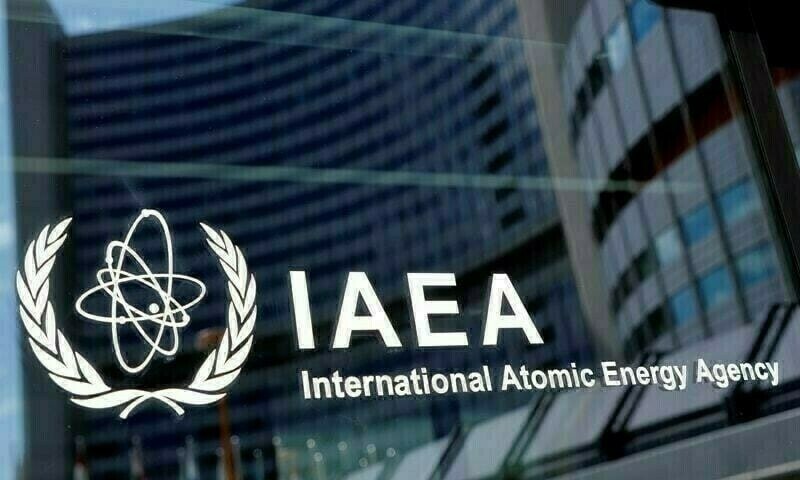Pakistan has given the nod for the production of radiopharmaceuticals in adherence to the International Atomic Energy Agency (IAEA) technical guidelines for member states.
In a significant stride towards enhancing healthcare capabilities, Pakistan has given the nod for the production of radiopharmaceuticals in adherence to the International Atomic Energy Agency (IAEA) technical guidelines for member states.
The decision, announced by the Drug Regulatory Authority Pakistan (DRAP), signifies the approval of IAEA Technical Report 466 and other relevant reports, establishing them as regulatory references for radiopharmaceutical products.
This move comes following the IAEA’s emphasis on strengthening South-South Cooperation, wherein Pakistan’s role was highlighted through the promotion of peaceful uses of nuclear technology.
In September 2023, the Director General of IAEA, Rafael Mariano Grossi, launched a publication titled “Pakistan,” acknowledging the country as a partner for strengthening cooperation. Grossi’s subsequent visit to Pakistan included the inauguration of the Cyberknife at the Nuclear Medicine Oncology and Radiotherapy Institute in Islamabad, a milestone for the country in cancer treatment.
The approved IAEA technical reports on radiopharmaceuticals now serve as regulatory references for DRAP, underscoring the commitment to international standards in the production and quality control of these crucial medical components.
The Theranostics Approach:
At the forefront of this development is the burgeoning field of theranostics, a cutting-edge medical discipline that enables simultaneous or sequential diagnosis and treatment using radiopharmaceuticals. This patient-centric approach has demonstrated the potential to deliver more accurate diagnoses and site-specific treatment while minimizing risks to healthy tissues.
Radiopharmaceuticals in Action:
The use of radiopharmaceuticals is unique to nuclear medicine, providing a capability distinct from other imaging modalities like CT, MRI, and ultrasound. Nuclear medicine procedures using specific radiotracers allow the mapping of physiological function and metabolic activity, providing specific information about organ function and dysfunction.
These radiopharmaceuticals play a crucial role in non-invasive mapping of organ function, aiding in the diagnosis of various diseases and the detection of certain types of cancers. The IAEA, in collaboration with member countries, has conducted training courses on the production and quality control of theranostic radiopharmaceuticals since 2018.
Local Production and Impact on Healthcare:
Several member states, through the IAEA’s technical cooperation program, have developed capacities for local production of radiopharmaceuticals, contributing to the growth of nuclear medicine practices and ensuring price stability. The local availability of these essential medical components has reduced the need for transporting radioactive consignments across international borders.
Cancer, neurological disorders, and cardiac dysfunctions are major causes of death in the Asia-Pacific region, with an expected doubling of their incidence by 2025 if appropriate diagnostics and treatment are not introduced.
Radiopharmaceuticals are increasingly being employed to address these healthcare challenges, allowing for effective screening, treatment planning, and monitoring of tumor development.
Pakistan’s Endeavors:
Currently, Pakistan’s Institute of Nuclear Medicine and Oncology (INMOL) in Lahore and its Nuclear Medicine Oncology and Radiotherapy Centre (INOR) in Abbottabad are actively producing novel radiopharmaceuticals for theranostic procedures. The IAEA’s technical cooperation program has played a pivotal role in providing equipment and training for these institutions.
Non-communicable diseases, especially cancer, neurological disorders, and cardiac dysfunction, account for more than 70 percent of age-standardized deaths in Pakistan. The incidence of these diseases is expected to double by 2025 without appropriate diagnostics and treatment.
The World Health Organization estimates that approximately 1.5 million cancer patients reside in Pakistan, with an annual increase of 150,000 patients. Theranostic interventions have demonstrated their efficacy in providing more accurate diagnoses, targeted drug delivery, and reduced hazards to healthy tissues.
Pakistan’s approval of IAEA technical reports on radiopharmaceuticals marks a significant step towards advancing healthcare capabilities and addressing the rising challenges of non-communicable diseases.
The focus on theranostics, with its patient-centered and targeted approach, holds promise for more effective diagnosis and treatment, ultimately contributing to improved outcomes for clinical patients. The collaboration between Pakistan and the IAEA underscores the importance of international cooperation in harnessing nuclear technology for peaceful and beneficial medical applications.
